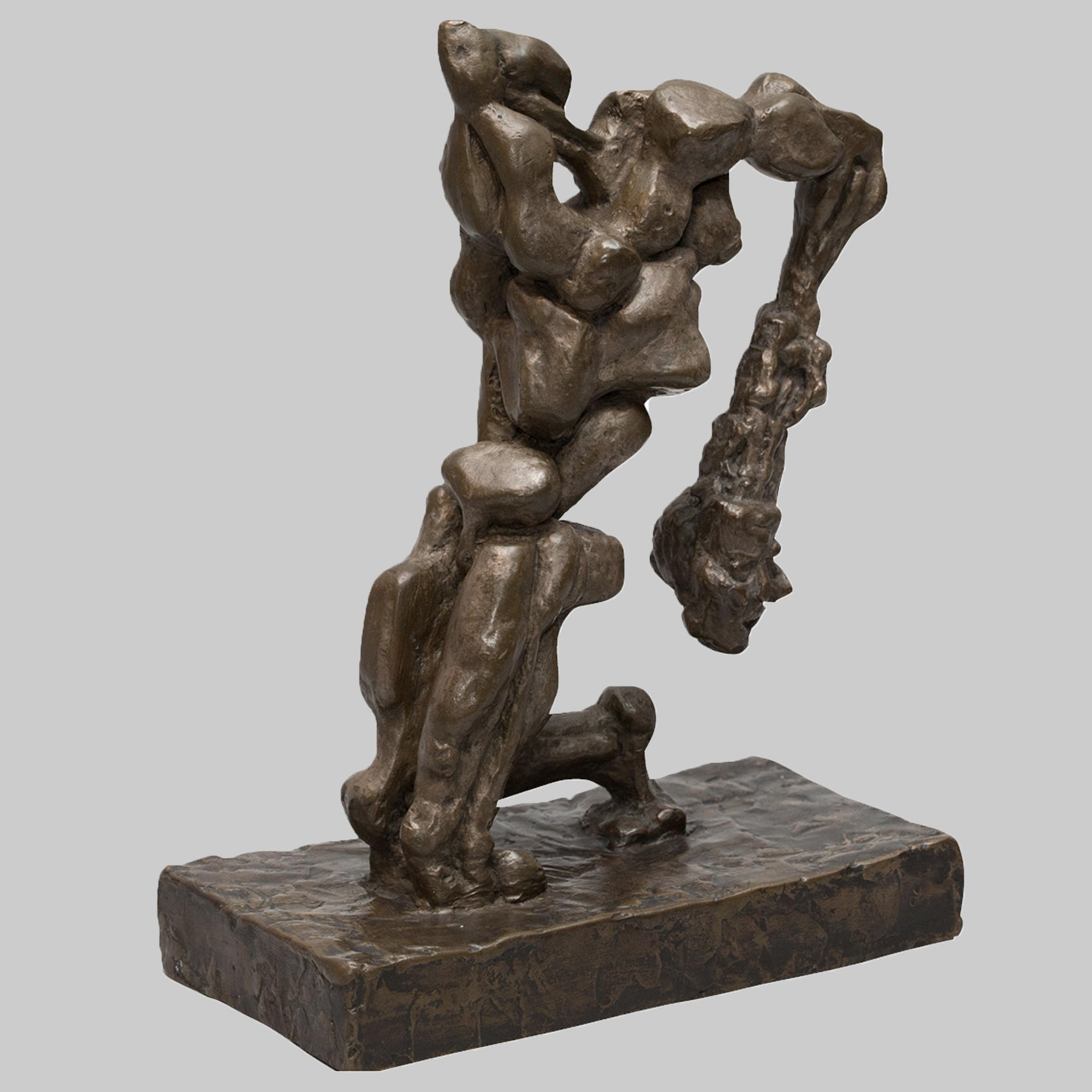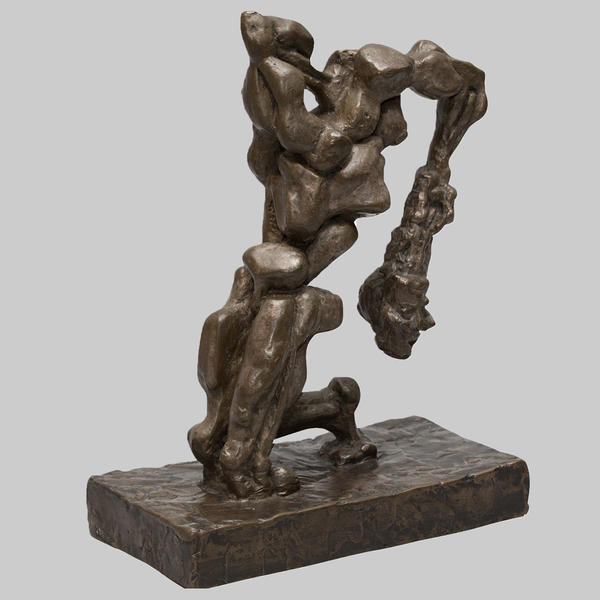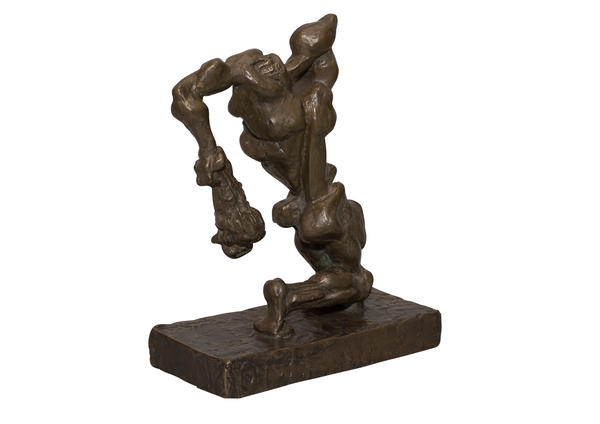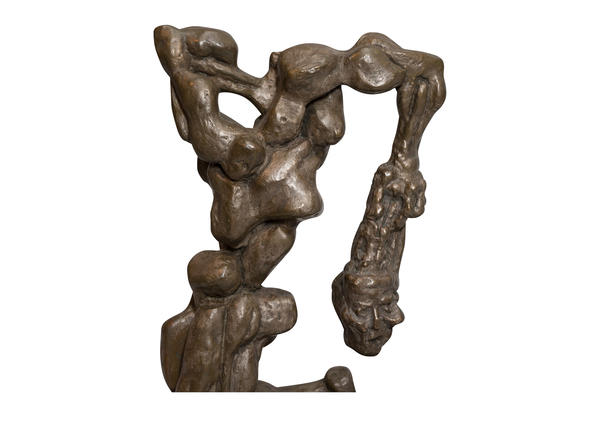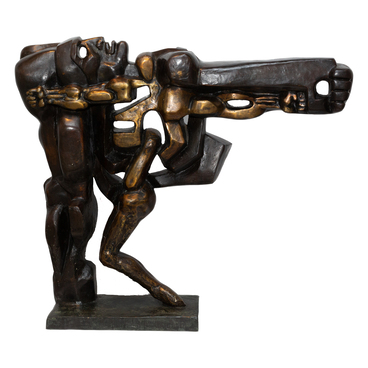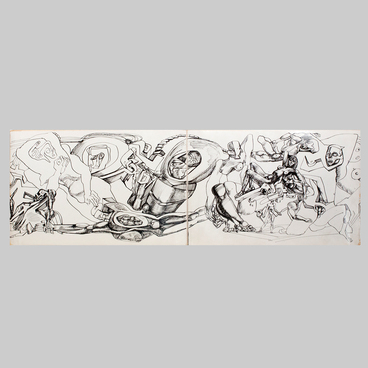In 1970, Ernst Neizvestny introduced the world to his new work representing a character of the Divine Comedy by Dante, the famous French troubadour Bertran de Born. The troubadour is depicted kneeling in a tense posture showing that he is in torment. Since he spent his whole life in wars with his own brother, the author of the Divine Comedy put him to the eighth circle of Hell, among other conflict instigators. A cause of contention was the castle of Hautefort, which he initially had to share with his brother. Later Bertran expelled his brother from the castle.
Bertran de Born was an Occitan troubadour and one of the most famous poets of the Middle Ages. This did not prevent him from taking an active part in the baronial conflicts and feuds of the Plantagenet family. Viscount Bertrand de Born was the eldest son of a noble lord from Périgord. The protracted war with his younger brother started precisely after he made him and his young wife leave the castle.
The brave Viscount praised his acts of military bravery in war sirventes. Interestingly enough, he regarded war as the only worthy occupation for a man. Military honour, valour, courage were the only joys of a real warrior. Bertran de Born’s poems impress listeners by their expression, rhythm, and imagery. He did not refrain from being sarcastic and making acid remarks about different people, which helped him draw attention to the moments he wanted to make prominent.
Even while addressing the lady he loved, the Viscount first of all spoke of military valour. His main love was the love for war, which was very typical for feudal knights. Excitement of tender looks, contemplation, sighs – all things of this kind were not so important, although Bertran de Born had four children. He was most famous for his two laments for Henry Plantagenet.
The troubadour spent the last years of his life in a monastery; there he lived for 20 years. Ilya Nikolaevich Golenishchev-Kutuzov, a Soviet literary critic, argued that Bertran de Born was mentioned in chronicles as a monk of the Dalon Abbey (1215).
Ernst Neizvestny portrayed him as a martyr holding his head by the hair with an enormous effort.
Bertran de Born was an Occitan troubadour and one of the most famous poets of the Middle Ages. This did not prevent him from taking an active part in the baronial conflicts and feuds of the Plantagenet family. Viscount Bertrand de Born was the eldest son of a noble lord from Périgord. The protracted war with his younger brother started precisely after he made him and his young wife leave the castle.
The brave Viscount praised his acts of military bravery in war sirventes. Interestingly enough, he regarded war as the only worthy occupation for a man. Military honour, valour, courage were the only joys of a real warrior. Bertran de Born’s poems impress listeners by their expression, rhythm, and imagery. He did not refrain from being sarcastic and making acid remarks about different people, which helped him draw attention to the moments he wanted to make prominent.
Even while addressing the lady he loved, the Viscount first of all spoke of military valour. His main love was the love for war, which was very typical for feudal knights. Excitement of tender looks, contemplation, sighs – all things of this kind were not so important, although Bertran de Born had four children. He was most famous for his two laments for Henry Plantagenet.
The troubadour spent the last years of his life in a monastery; there he lived for 20 years. Ilya Nikolaevich Golenishchev-Kutuzov, a Soviet literary critic, argued that Bertran de Born was mentioned in chronicles as a monk of the Dalon Abbey (1215).
Ernst Neizvestny portrayed him as a martyr holding his head by the hair with an enormous effort.
